This post may contain affiliate links. Please read our disclosure policy.
In the spirit of Earth Day and Earth Month, we have been inspired to make changes in our lives to reduce our impact and our waste. As humans coexisting on this planet, we need to understand the impact we have and to try and make a long-lasting difference for the sake of the Earth.
We are not at this moment waste free or zero waste, but we are making changes each day to reduce our impact. Even simple changes can make a worthwhile impact. No need to feel any guilt or pressure, but do what you can to make small changes every day, and in time they will add up to something substantial.
Although we aren’t experts in this topic, we thought that it would still be helpful for us to round up 25 easy changes that we are making and hopefully have you join us in reducing our waste.
The 6 R’s of Waste Management
Before we get into the ways you can reduce waste, we want to introduce you to the 6 R’s of Waste Management. These 6 methods are important to keep in mind when beginning a low impact lifestyle. Each offers different solutions to minimize waste and has also helped us stay more mindful on our personal journey.
- Refuse what you don’t need: Refusing will eliminate most of your trash. Learn to say no to produce wrapped in plastic, to freebies, to disposables, etc. As the saying goes, practice makes permanent. You have to start somewhere, so start with an easy exercise like this.
- Reduce what you don’t need or no longer have use for. Donate items, and use websites and apps like Poshmark, OfferUp, and Craigslist to sell high-value items that you no longer need, and others may have use for.
- Reuse things that you have and/or opt for reusables. Say no to single-use plastics, and be diligent when it comes to bringing a reusable bag to go shopping, or a set of reusable utensils and straws when ordering food.
- Repurpose items that you would ordinarily discard. For example, glass jars from marinara sauce can be reused for food storage, and aluminum cans can be made into planters. These are just two examples, but the possibilities are endless. Get creative and let us know what you come up with.
- Rot. This one might not be so obvious, but rot refers to composting. It’s always a good idea to start a little compost bin, whether indoors or outdoors. Save your food scraps and add them to your compost bin regularly. If you don’t want to, or are unable to start your own compost pile, your city or town may have a composting program. You can also inquire with your local whole foods or farm to see if you can pass off your food scraps to them to compost.
- Recycle is the last of the 6 R’s of Waste Management which may be surprising to some. Most of us were raised to think that recycling was the best thing we could do with our waste and help the environment. In reality, this should be the method to take when all else fails. (more on this later in the most)
Now that we are well acquainted with the 6 R’s, let’s get into some simple tips to reduce our waste every day.
-
Don’t take home any unnecessary trash or junk
If you want a flyer or business card, take a photo rather than taking it home. This is especially relevant at concerts and outings where freebies are being passed out. Although you may be in the habit of accepting everything that is handed to you, shift your mindset and start asking yourself, “Do I really need this?” If not, politely decline. Remember, if you happen to be interested in the info, simply snap a photo with your phone.
-
Try to refuse junk mail
The junk mail epidemic is real. I don’t know about you, but we are constantly inundated with heaps of junk mail. We always end up recycling it, but we found out there is a better option. We came across the website Eco Cycle where you can opt out of receiving circulars and other junk mail items. It does cost a few bucks, but we think it’s money well spent. There is also Catalog Choice which is a site that archives how to opt out of mailing lists for specific brands.
-
Say no to plastic bags for groceries or produce and bring your own instead
Remember, you don’t need to use produce bags. You can purchase reusable bags specifically for produce (we love these ones). Also, when shopping in bulk, you can bring your own jars and have them weighed out ahead of time by a cashier. This way, you won’t be paying anything additional for the weight of the jar. You can also bring several identical jars and keep one empty to get an accurate tare weight.
-
Go paperless
We know this can be a challenge, but opting for kindles, online books, or even renting from the library or borrowing from a friend makes a huge difference. You can also choose audiobooks, and opt for a digital version of concert tickets, boarding passes, and bills.
- Invest in higher quality items
We’ve found that it’s more sustainable to spend a little bit more money up front, instead of consistently replacing lower quality items. Higher quality items will last longer in the long run and will save you money. Example: instead of opting for disposable shavers, consider a reusable one or electric one.
-
Use kitchen towels instead of paper towels
This simple switch can have a huge impact and it’s something you can start doing right now. Admittedly, we still have paper towels in our home, but they are more so to clean up after Berry (our dog) if he has an accident or to clean up anything else that may ruin a kitchen towel.
-
Buy second-hand or from eco-conscious brands
Make an effort to stop buying things that you don’t need. We know first hand that impulsive purchasing is a real thing, so when you do want to buy something, look toward second-hand and thrift stores, or make an effort to buy from eco-conscious brands.
-
Ditch plastic straws
A simple change you can make is saying no to disposable straws. Those few extra seconds you take to refuse a single-use disposable will help you keep waste out of the landfill or from ending up in our beautiful oceans. We recommend buying and bringing your own glass or steel straw where ever you go. They can easily be stored in a bag or in your car for access when you need it (just remember to wash it and put it back after you use it!). You can purchase reusable straws for a just a few bucks and they last a lifetime.
-
Opt for reusable food wraps instead of plastic wrap or aluminum foil
Did you know that vegan-friendly food wraps exist? We got some not too long ago and love them. They’re essentially a waxy cloth-like material with oils that warm up from the heat of your hands to cover plates, bowls, cut fruit, and veggies, etc. They’re the perfect alternative to plastic cling wrap and you can use them again and again. Buyer beware, some brands of these wraps contain beeswax, but we have some from Khala Cloth that is 100% vegan.
-
Use reusable storage bags instead of ziplock bags
Say goodbye to plastic ziplock bags for good. Reusable storage bags are the perfect alternative to single-use plastic bags and are so much more versatile. We use Stasher bags and they’re oven, microwave, and dishwasher safe. You can also boil and steam your food in them, which can make life so much easier. The best part is, you’ll be saving so much money by never purchasing ziplock bags again.
-
Use silicone baking mats instead of foil or parchment paper
Swapping single-use foil and parchment paper for silicone baking mats is an easy and affordable solution. You can grab a 2-pack on Amazon for just 8.99. They’re durable and will save you a bunch of money over the long term.
-
Rethink your coffee choices
Using a french press is the perfect zero waste option for brewing coffee. No disposable coffee filters insight, and a perfect cup every single time. Many stores carry coffee in bulk, so you can bring your own containers and refill them when you need to. If you have a Keurig, opt to use a reusable k-cup instead of disposable ones.
-
Bring reusable containers and utensils
This one takes a bit of habit-forming, but we promise it gets easier! Whenever going out to eat, bring along a reusable container for any leftovers. If it helps, keep one in the car, because let’s be honest, you never know when hunger will strike! We also always carry a set of reusable utensils around with us to avoid using single-use plastic ones.
-
Repurpose items that would otherwise be disposable
If you buy pasta jars, turn them into storage. Have old candles or cans? Turn them into pots for plants! If you do a quick Ecosia, Google, or Pinterest search, you can find tons of ways to repurpose items in your house.
- Composting is easier than it seems
Before throwing away kitchen scraps, lawn clippings or dead leaves in your yard, consider making a compost pile or bin. If you do not have a yard, you can freeze your food scraps until you can make it to the farmer’s market or somewhere you can donate your compost.
-
RECYCLE what you cannot refuse, reduce, or reuse and learn how to recycle properly!
This is something that we are new to. In the past, we’ve mindlessly recycled things that we assumed were okay, but we realized that this wasn’t always the best practice.
Here’s an excerpt from our friend Marina’s website Zero Waste Kit that goes into great detail about the best practice of recycling:
“We hate to even include this R on here, as it has become quite the controversial topic over the past year. Between China no longer taking our recyclables, policies differing from state to state, and the lack of transparency in the industry overall, it’s difficult to even label recycling as a “green” form of waste disposal. Nonetheless, it exists and we are here to help you utilize it in the most efficient and eco-conscious way.
- Twist off the cap and ring of your plastic water bottle before recycling. These two water bottle components aren’t recyclable. In fact, bottles that arrive at recycling centers with the caps still on often are sent to the landfill. Ditch plastic water bottles altogether by adopting a reusable. Example brand we love here.
- Remove all food residue before recycling. This goes for paper towels, paper plates, pizza boxes, food containers, etc. Food waste impurities are one of the main reasons China stopped taking our recyclables. Contaminated recyclables are rendered useless, so do your best to clean them to the best of your abilities. Better yet, use containers you can reuse over and over again, like glass jars and metal food containers. Consider your Zero Waste Kit or a lunch box style bento box for storing foods or liquids on-the-go.
- Find out what types of plastic your local recycling center accepts. Not all plastic is created equal; therefore, not all plastic can be recycled the same way. Look for the number inside the recycling symbol — the three arrows that form a triangle — and make sure you only put the right types into your bin.
- Learn how to recycle paper. Did you know you can’t recycle shredded paper? The long fibers cannot easily be used to make good recycled paper products, so this is a good example of a paper product you’d be better off composting than putting in the recycling bin. To learn more about paper and what can and cannot be recycled, visit this helpful guide by Waste Management.
- Never, never, never put plastic grocery bags into your recycling bin. Plastic bags often get tangled in the recycling center machines and damage them. Avoid them entirely by bringing your own Zero Waste Kit tote bags to shop. For the plastic bags you do have, bring them back to the store to recycle them. If there isn’t a bin to collect bags, encourage the store manager to provide one.
- When in doubt, call your local recycling center. While we wish we could tell you otherwise, the truth is every community recycles differently. If you cannot find the answer to your recycling questions online, consider calling your local recycling center.
-
Going vegan / adopting a plant-based lifestyle
Going vegan is one of the most significant things you can do to reduce your environmental impact. While it’d be an entire blog post within itself, there are some staggering facts about the effects that animal agriculture has on our planet. You find in-depth information on the Cowspiracy website linked here.
-
Do It Yourself: Decor, Clothing, Cleaners
Get creative and DIY! Before purchasing items like home decor, clothing, and household cleaners, think to yourself, “Can I make this myself?” Many times, you can repurpose items you have around your home and make them new again. We also have a great recipe for a homemade house cleaner that you can find here.
-
Cooking at home and planning out your meals.
Something so simple can make a huge difference. When you buy in bulk and plan out meals throughout the week, you’re less likely to order take-out or impulse buy food when you’re out and about. Be prepared and do your best to pack food and snacks in reusable containers to limit useless waste.
-
Menstrual Cups
Did you know that it takes a tampon longer to degrade than the lifespan of the woman who wears it? Plus, the average woman will use over 11,000 disposable (single-use) menstrual products in her reproductive lifetime. How crazy is that?! Two reliable, eco-friendly and reusable options that Jasmine has turned to is a menstrual cup and period panties. Jasmine uses the Diva Cup, but there are many different shapes and sizes out there so we recommend you check this video out to learn more. Period panties are something that can be worn in conjunction with a menstrual cup or on their own, check them out here.
-
Choose loose leaf tea over tea bags
Just as you can buy coffee in bulk, you can purchase tea in the same fashion. Make a small investment into a reusable tea strainer and transform your tea consumption habits effortlessly. Many tea bags are made with microplastics, which can leach into the water as you steep it, and then into our oceans once it’s discarded.
-
Pick up trash wherever you go (plogging)
Get into the habit of picking up trash when you see it on the ground. Although it will be going into a landfill, it’s better to keep trash contained in an area to limit the potential harm to wildlife. Plogging, which is the act of picking up trash as you jog, has become a fun and effective way of cleaning up your area. It’s a great way to exercise, too!
-
Store food properly
Storing food properly is an effective way to cut down on food waste and maximize the life of produce and other perishable items. We have an in-depth blog post and video that outline best practices for food storage if you’d like to learn more!
-
Use Ecosia
Ecosia is essentially google, but they plant trees for every search that you make. Making the conscious effort of using Ecosia instead of Google, has contributed to the planting of over 55 million trees (and counting)!
- End Thoughts
Start to think about what you really need. We all have a lot of things at home we never use. Some of our stuff still has tags on it! We recently went through our closet and home and realized that there was so much that we have, but don’t need. This is an important step to reducing our waste because it opens our eyes to what we need and starts reducing consumption. Reducing in every aspect of our lives not only simplifies things, but it also helps you save money and identify what’s important to you. It also feels amazing to clean out your lift and donate what no longer serves you. If you have things that you don’t need or no longer bring you joy, it’s time to say goodbye to them!
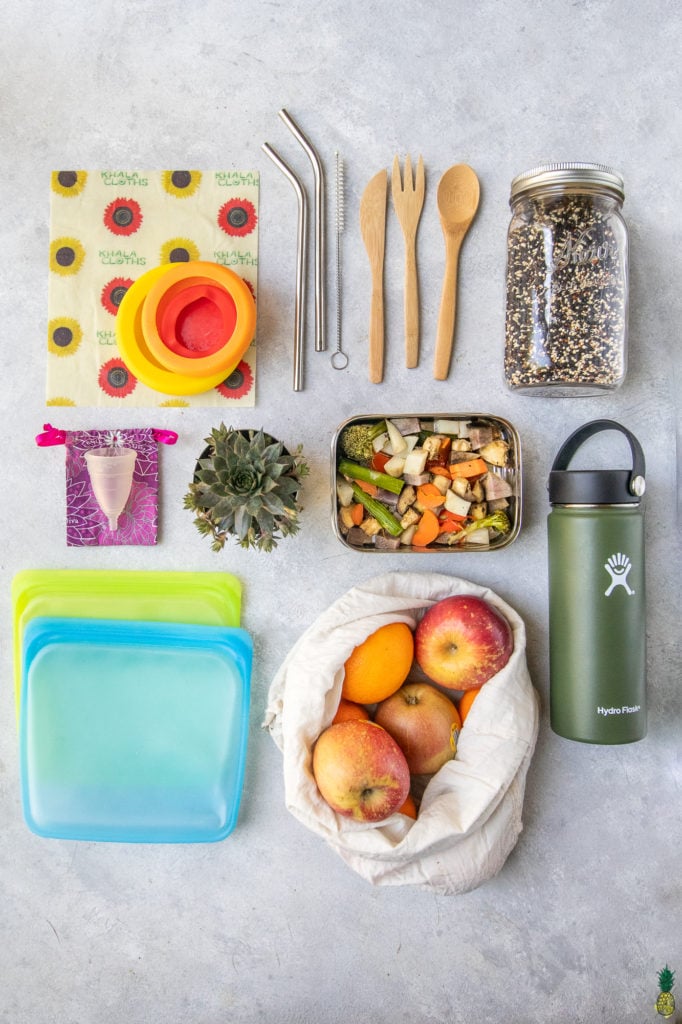
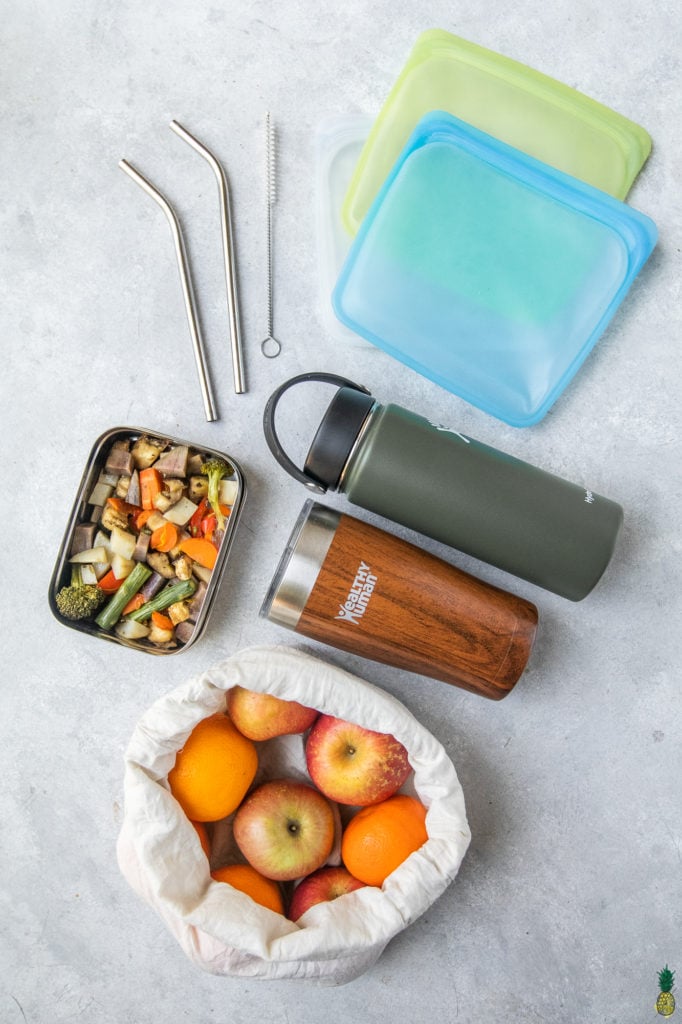
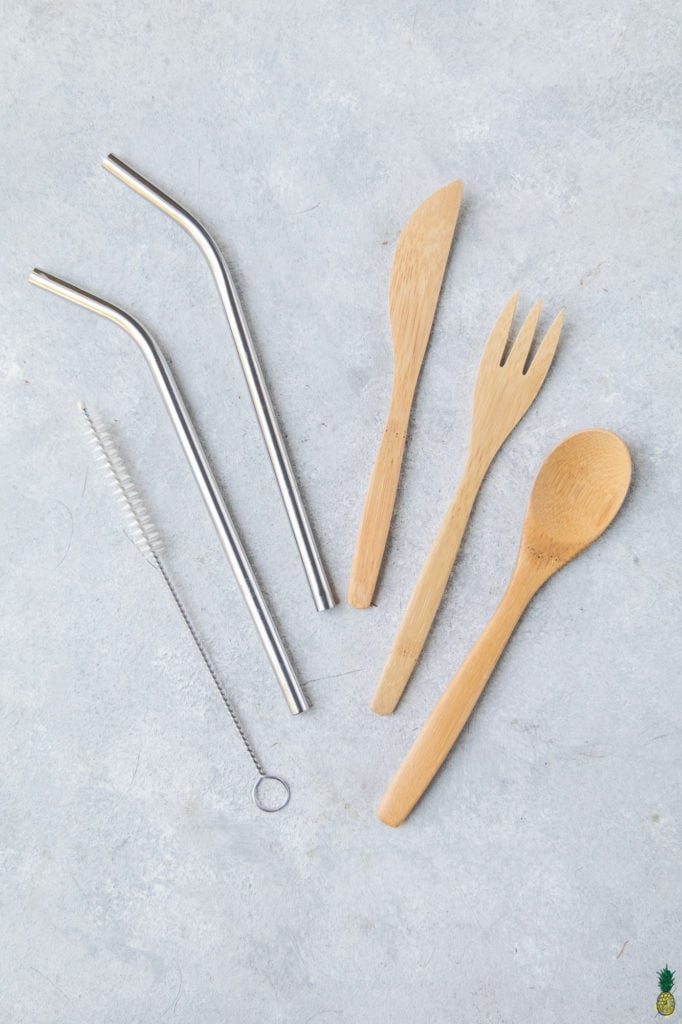
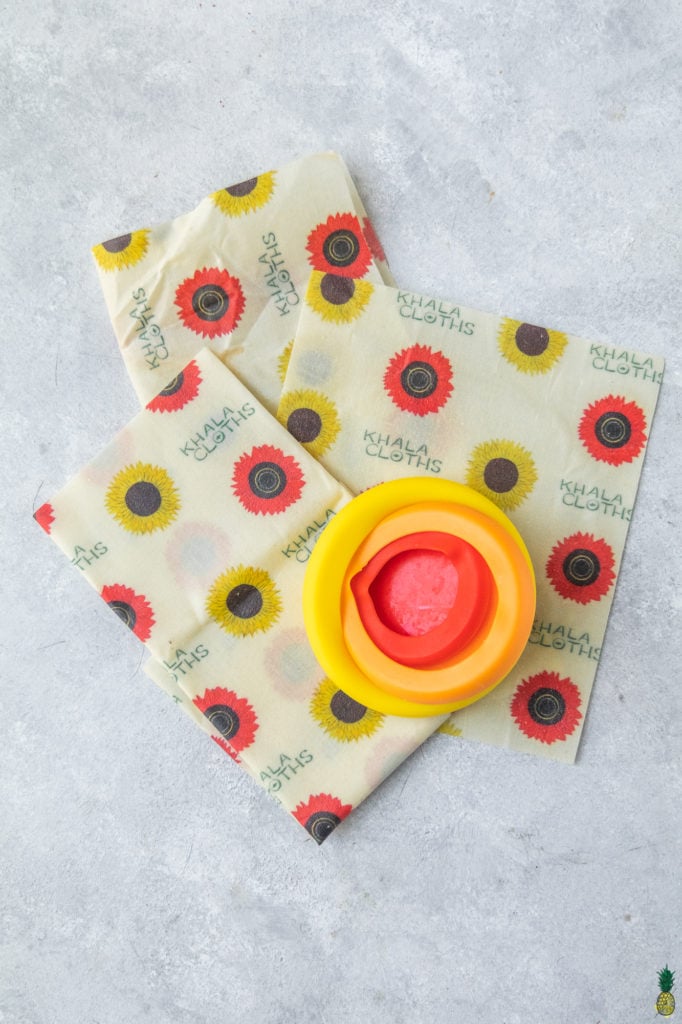
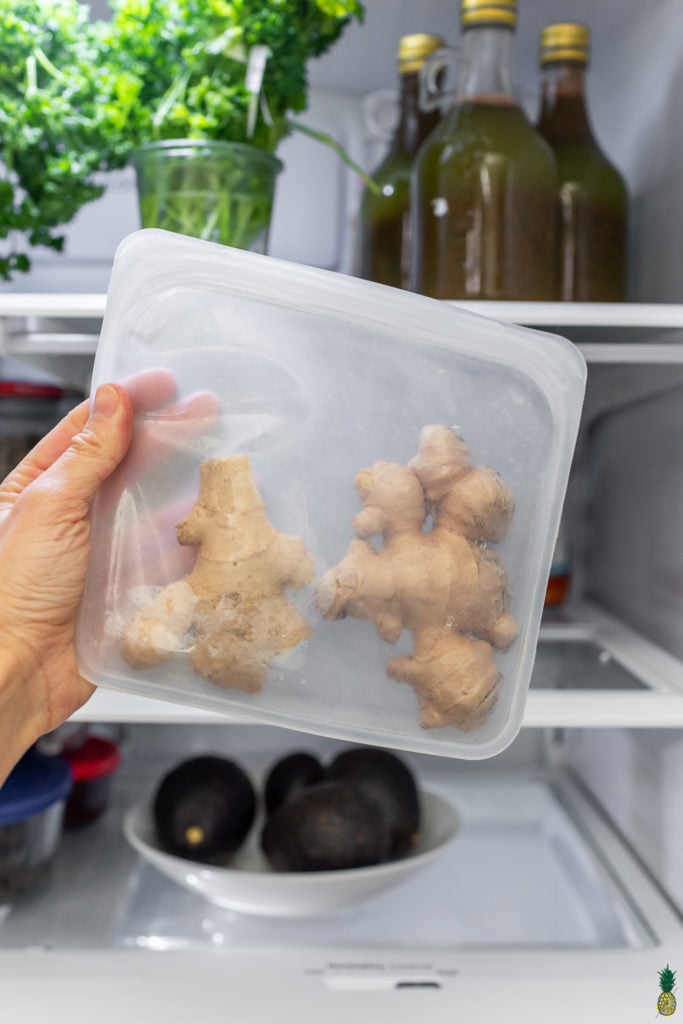
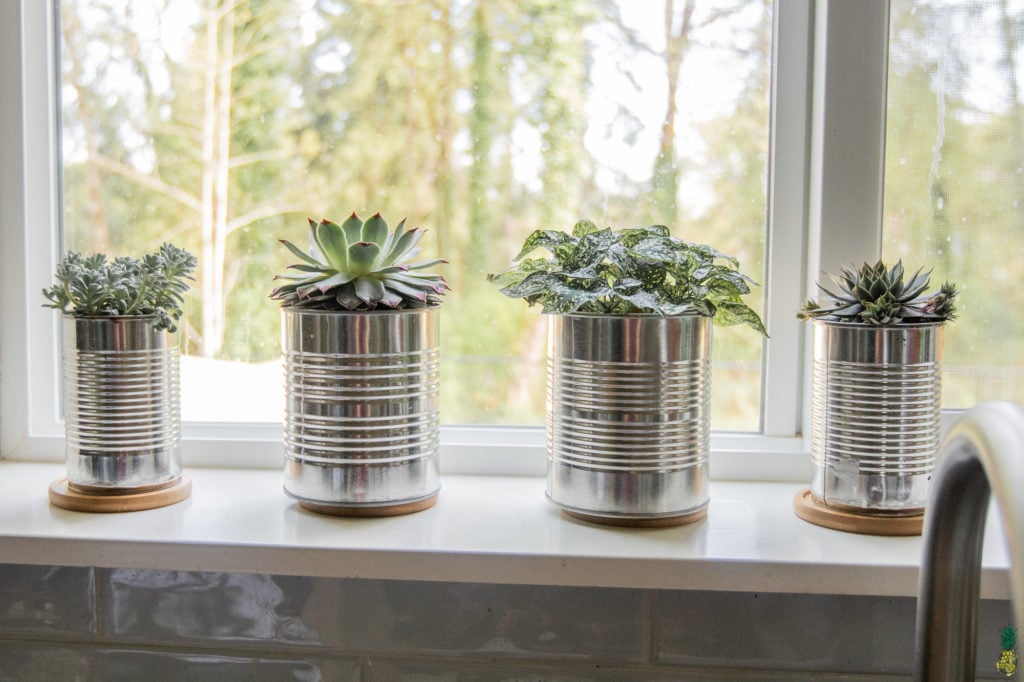
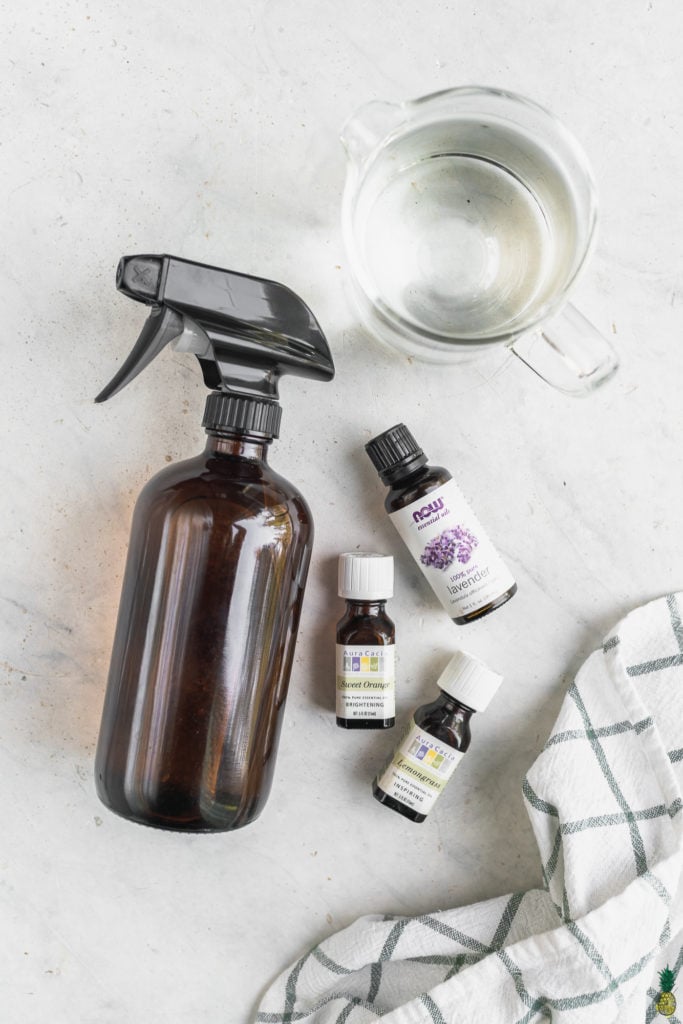
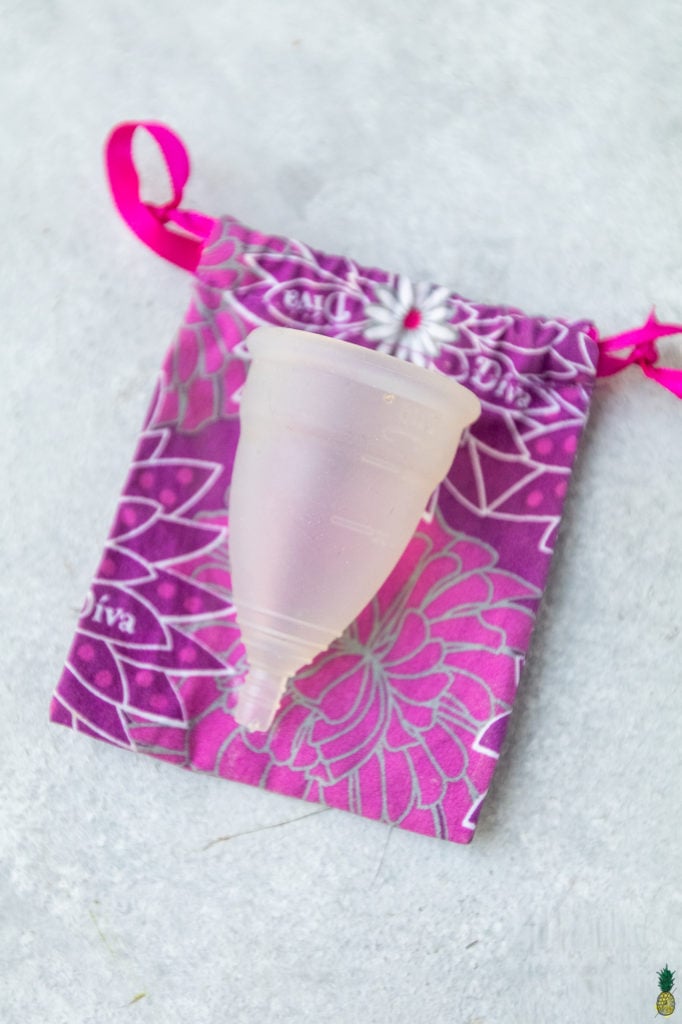
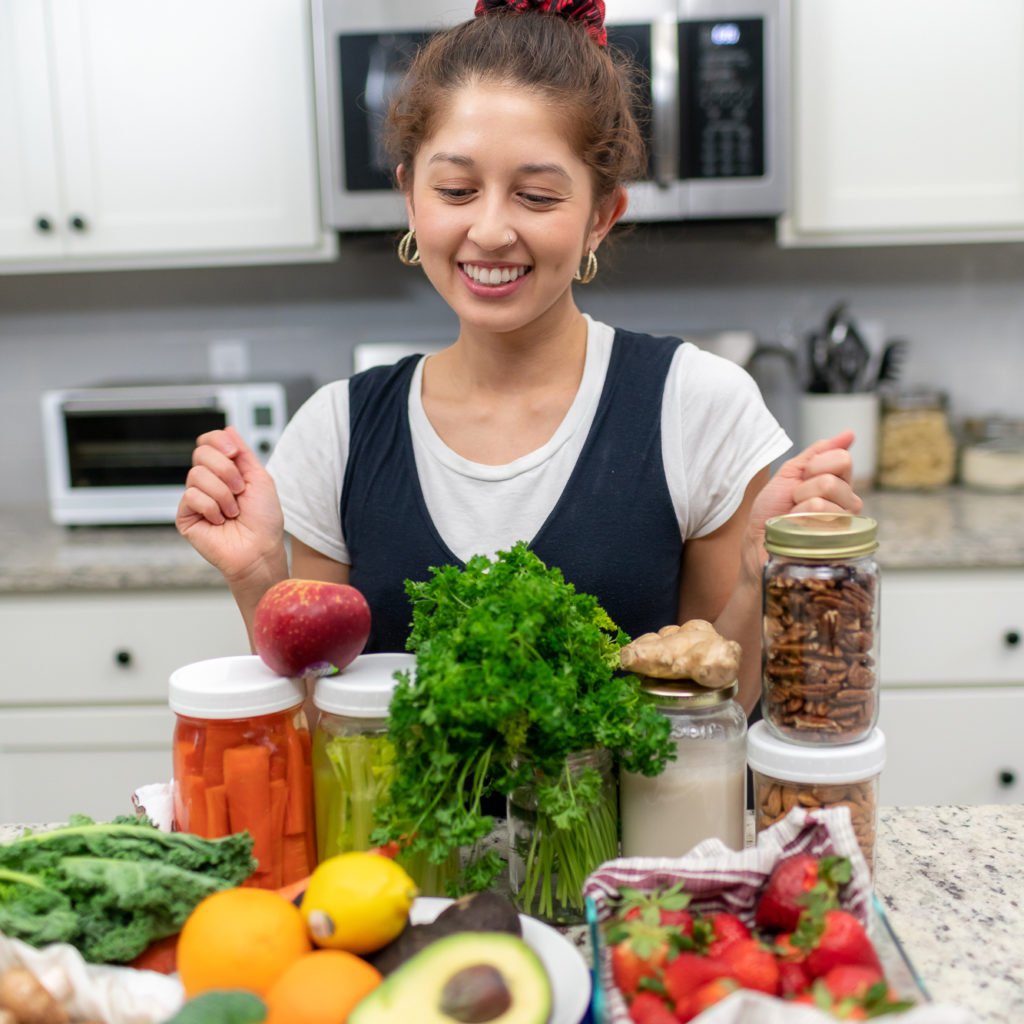


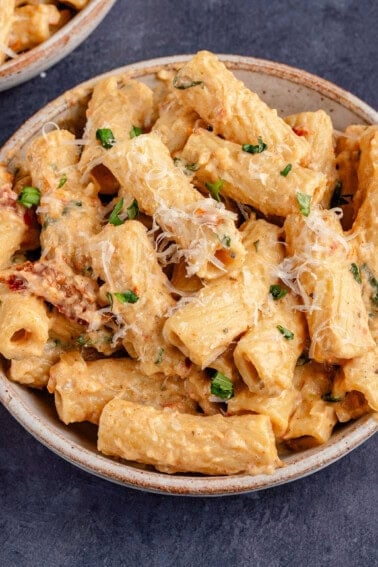
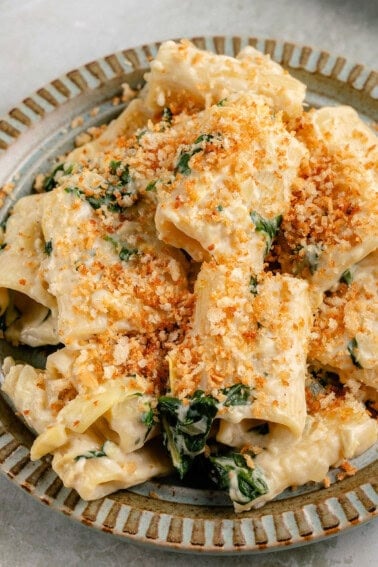








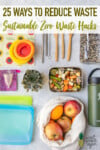
thoughtful list, thanks! btw at least in portland you can compost coffee filters. 😉
That’s awesome! I wish we had the compost bin here in Vancouver, it would be so helpful!
totally agree, small changes big results!!!
Yes!! 🙂